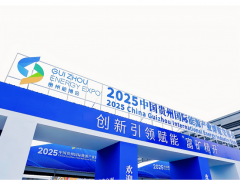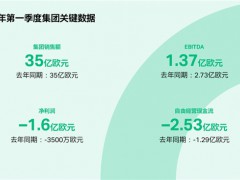根據(jù)世界最大的大宗商品交易商之一的托克公司所說,今年油價(jià)將很難突破100美元
自今年春天攀升至每桶130美元以上以來,油價(jià)一直在下跌,布倫特原油價(jià)格最近跌至每桶85美元
由于各國央行大舉加息,以及疫情因素,要將油價(jià)推至100美元,還需要做出很多改變
據(jù)油價(jià)網(wǎng)9月27日?qǐng)?bào)道,全球最大的大宗商品交易商之一的托克公司表示,全球經(jīng)濟(jì)放緩和加息將使投資者和交易商遠(yuǎn)離原油等風(fēng)險(xiǎn)資產(chǎn),這可能意味著今年油價(jià)每桶可能不會(huì)再次超過100美元。
“考慮到宏觀經(jīng)濟(jì)的不利因素,我認(rèn)為總體而言,價(jià)格將會(huì)掙扎…… 盡管制裁迫在眉睫”,托克公司首席經(jīng)濟(jì)學(xué)家薩阿德·拉希姆在新加坡亞太經(jīng)合組織石油會(huì)議期間對(duì)路透社記者如是表示。
布倫特原油價(jià)格最近跌至每桶85美元,這是今年1月地緣政治沖突之前出現(xiàn)的水平。今年春天,油價(jià)達(dá)到了多年來的高點(diǎn),每桶超過130美元。
在利率上升、經(jīng)濟(jì)放緩的證據(jù)越來越多、進(jìn)一步大幅加息可能抑制經(jīng)濟(jì)增長(可能還會(huì)抑制石油需求增長)的背景下,投資者對(duì)風(fēng)險(xiǎn)資產(chǎn)的厭惡情緒在第三季度一直給石油市場(chǎng)帶來壓力。
托克公司的首席經(jīng)濟(jì)學(xué)家拉希姆對(duì)路透社記者表示:“到目前為止,市場(chǎng)更多的是轉(zhuǎn)向而非削減,但我認(rèn)為從現(xiàn)在開始還不清楚。”
這位經(jīng)濟(jì)學(xué)家對(duì)路透社表示,如果明年放松疫情有關(guān)限制,以及美聯(lián)儲(chǔ)放緩或暫停加息以試圖刺激經(jīng)濟(jì)增長,那么油價(jià)可能反彈到每桶100美元以上。
拉希姆說,盡管目前的油價(jià)每桶低于90美元,歐佩克+還沒有做出回應(yīng),因?yàn)樗麄兛赡茉诳紤]整個(gè)市場(chǎng)的情況,“實(shí)際上,目前的全球石油需求仍然相對(duì)堅(jiān)挺” 。
李峻 編譯自 油價(jià)網(wǎng)
原文如下:
Will Oil Prices Bounce Back Above $100 This Year?
· According to one of the world’s largest commodity traders, oil prices will struggle to break back above $100 this year.
· Since climbing above $130 a barrel this spring, oil prices have fallen consistently, with Brent slumping to $85 recently.
· As central banks aggressively hike interest rates and the Covid factor, much would have to change to send oil prices to $100.
Slowing economies and interest rate hikes are set to keep investors and traders off risk assets such as crude oil, which could mean that oil prices may not exceed $100 per barrel again this year, according to one of the world’s largest commodities traders, Trafigura.
“Given the macro headwinds, I think generally prices will struggle ... despite imminent sanctions,” Saad Rahim, Chief Economist for Trafigura, told Reuters on the sidelines of APPEC petroleum conference in Singapore.
Oil prices have recently slumped to $85 a barrel Brent, a level last seen in January this year before the war. In the spring, oil hit multi-year highs of over $130 a barrel.
An aversion to risk assets amid rising interest rates, mounting evidence of slowing economies, and further aggressive rate hikes that could dampen economic growth—and possibly oil demand growth—have been weighing on the oil market during the third quarter.
“So far the market has been more redirection than reduction, but I think it is unclear from here,” Trafigura’s Rahim told Reuters.
Next year, oil prices could rebound to above $100 per barrel if it lifts Covid-related mobility restrictions and the Fed slows or pauses rate hikes to try to boost growth, the economist told Reuters.
Despite the current sub-$90 oil, OPEC+ hasn’t responded yet, because they are likely looking at the overall market picture, Rahim said, adding that “actually demand today is still relatively holding up.”
免責(zé)聲明:本網(wǎng)轉(zhuǎn)載自其它媒體的文章及圖片,目的在于弘揚(yáng)石化精神,傳遞更多石化信息,宣傳國家石化產(chǎn)業(yè)政策,展示國家石化產(chǎn)業(yè)形象,參與國際石化產(chǎn)業(yè)輿論競(jìng)爭(zhēng),提高國際石化產(chǎn)業(yè)話語權(quán),并不代表本網(wǎng)贊同其觀點(diǎn)和對(duì)其真實(shí)性負(fù)責(zé),在此我們謹(jǐn)向原作者和原媒體致以崇高敬意。如果您認(rèn)為本站文章及圖片侵犯了您的版權(quán),請(qǐng)與我們聯(lián)系,我們將第一時(shí)間刪除。







